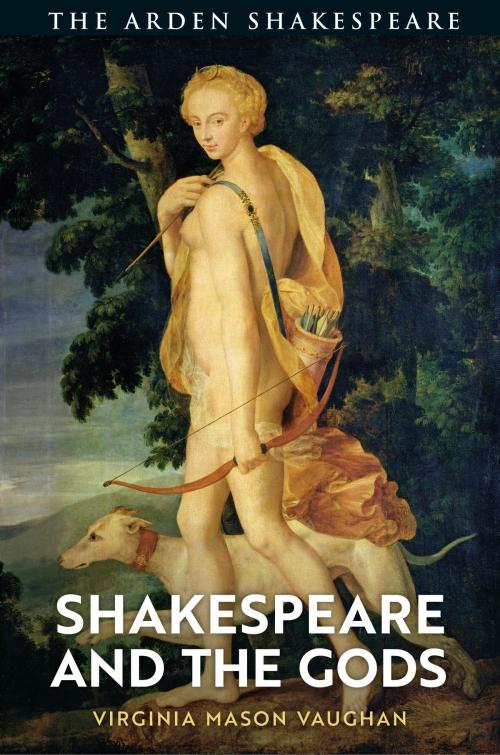Shakespeare and the Gods
Fiction & Literature, Literary Theory & Criticism, British, Nonfiction, Entertainment, Drama, Shakespeare| Author: | Professor Virginia Mason Vaughan | ISBN: | 9781474284288 |
| Publisher: | Bloomsbury Publishing | Publication: | January 24, 2019 |
| Imprint: | The Arden Shakespeare | Language: | English |
| Author: | Professor Virginia Mason Vaughan |
| ISBN: | 9781474284288 |
| Publisher: | Bloomsbury Publishing |
| Publication: | January 24, 2019 |
| Imprint: | The Arden Shakespeare |
| Language: | English |
Shakespeare and the Gods examines Shakespeare's many allusions to six classical gods (Jupiter, Diana, Venus, Mars, Hercules and Ceres) that enhance his readers' and audiences' understanding and enjoyment of his work. Vaughan explains their historical context, from their origins in ancient Greece to their appropriation in Rome and their role in medieval and early modern mythography. The book also illuminates Shakespeare's classical allusions by comparison to the work of contemporaries like Edmund Spenser, Ben Jonson and Thomas Heywood and
explores allusive patterns that repeat throughout Shakespeare's canon. Each chapter concludes with a more focused reading of one or two plays in which the god appears or serves as an underlying motif. Shakespeare and the Gods highlights throughout the gods' participation in western constructions of gender as well as classical myth's role in changing attitudes toward human violence and sexuality.
Shakespeare and the Gods examines Shakespeare's many allusions to six classical gods (Jupiter, Diana, Venus, Mars, Hercules and Ceres) that enhance his readers' and audiences' understanding and enjoyment of his work. Vaughan explains their historical context, from their origins in ancient Greece to their appropriation in Rome and their role in medieval and early modern mythography. The book also illuminates Shakespeare's classical allusions by comparison to the work of contemporaries like Edmund Spenser, Ben Jonson and Thomas Heywood and
explores allusive patterns that repeat throughout Shakespeare's canon. Each chapter concludes with a more focused reading of one or two plays in which the god appears or serves as an underlying motif. Shakespeare and the Gods highlights throughout the gods' participation in western constructions of gender as well as classical myth's role in changing attitudes toward human violence and sexuality.















